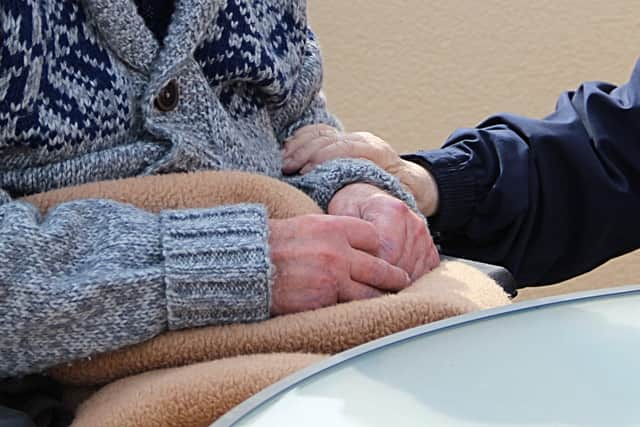New NHS figures show Ashfield has one of the highest rates of dementia diagnosis in England
and live on Freeview channel 276
The figures show 1,565 people aged 65 and older in Ashfield were estimated to have dementia in March 2023.
Of them, 1,275, or 81.5 per cent, had a formal diagnosis – one of the highest rates of diagnosis in England.
Advertisement
Hide AdAdvertisement
Hide AdIt meant 18.5 per cent of people believed to have dementia in the area did not have a diagnosis.


Reacting to the figures, Maxine Bunn, system delivery director for mental health and children at NHS Nottinghamshire Integrated Care Board, said: “Nottinghamshire has one of the highest dementia diagnosis rates in the country and we continue to work hard to increase access to early diagnosis and follow up support.
“Within Ashfield, there are a number of initiatives under way to continue to improve awareness of the condition.
“These include specialist dementia nurses in GP practices, a community engagement coordinator who is raising awareness of dementia locally and a number of dementia friendly activities and groups.
Advertisement
Hide AdAdvertisement
Hide Ad“Timely diagnosis of dementia is very important, and we would encourage anyone who is concerned about their memory or cognition to contact their GP as soon as possible.
“An early diagnosis helps both the person and family members to learn about the disease, set realistic expectations and plan for their future together.”
Paul Edwards, director of clinical services at Dementia UK, said dementia is a growing issue in society largely due to an ageing population.
He said continued cuts and a lack of focus on community services which support families with dementia have led to ‘thousands being stuck in limbo and highly stressed’ as they are unable to get a diagnosis.
Advertisement
Hide AdAdvertisement
Hide AdHe said: “In this climate of stretched services and increasing diagnosis rates, we urgently need to bridge the gap between health and social care systems, so that people receive a timely diagnosis and can access the support they need.
"No-one should have to face dementia alone."
Across England, an estimated 687,000 people aged 65 and older have dementia.
Of them, 433,000 patients, 63 per cent, had a recorded diagnosis of dementia as of March this year.
Mark MacDonald, Alzheimer’s Society associate director for advocacy, said dementia diagnosis rates hit a five-year low during the coronavirus pandemic and have stagnated ever since.
Advertisement
Hide AdAdvertisement
Hide AdHe said: "This means that tens of thousands of people are facing the realities of dementia alone, without access to the vital care and support that a diagnosis can bring.
“Timely diagnosis is crucial to manage symptoms and avoid ending up in crisis.”
He said the Government must commit to recovering diagnostic rates to pre-pandemic levels of 66.7 per cent and called for a £70 million investment in England’s diagnosis services.
He said: “Getting a diagnosis can be daunting, but we believe it’s better to know.”
A Department of Health and Social Care spokesman said: “Timely diagnosis of dementia is vital, and the NHS is committed to bringing the dementia diagnosis rate back to pre-pandemic levels.”